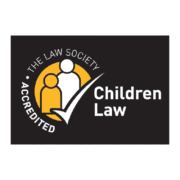When parents separate, it is usually a question for both parties as to what will happen to their child(ren) – who they will live with, and so on. If there is a dispute between both parties, this will usually be dealt with by obtaining a child arrangements order.

Child arrangements orders are child focussed, meaning they consider the needs, requirements, and welfare of the child first. As outlined in the Children Act 1989, a child arrangements order accounts for with whom a child is to live, spend time or otherwise have contact, and when a child is to live, spend time or otherwise have contact with any person.
An example of a contact arrangement in a child arrangement order might be that the child spends weekdays with one parent, and weekends with the other.
It is important that you instruct a Child Arrangements Order Solicitor to assist you with this process so that you get the most favourable outcome for both you and your child.
We understand that separation and child arrangement orders can be an emotional time for everyone involved. At Reeds Solicitors LLP, we have a team of experienced family lawyers who are here to help you through these difficult challenges. Call Reeds Solicitors LLP on 0333 240 7373 or via email on [email protected].
How We Can Help
Family law matters, especially those involving children, can be extremely sensitive. Rest assured, all discussions and information shared with our team are strictly confidential. Your privacy and reputation are paramount to us.
We will be firm when it comes to protecting your rights, the best interests of your children, and achieving the best outcome. We believe family law is ultimately about people and we understand how difficult and emotional matters such as divorce, making arrangements for children on separation and care proceedings can be. We will be there to support you and guide you through your legal journey and provide you with legal advice and representation you can trust.
Some family law matters, such as obtaining injunctions,, require speed and tenacity to ensure you are protected. Our Divorce Solicitors are familiar with common tactics used to stall financial settlement proceedings, especially in international and high-net-worth divorces. They will proactively enact strategies to ensure your case keeps moving forward.
Our Family Law Solicitors can help you with a full range of family matters, including but not limited to divorce, high net worth divorce, children’s law, care proceedings and PLO meetings, child abduction, Non-Molestation Orders and Occupation Orders, and TOLATA cases.
Family law matters, especially those involving children, can be extremely sensitive. Rest assured, all discussions and information shared with our team are strictly confidential. Your privacy and reputation are paramount to us.
Frequently Asked Questions
The specifics of your child arrangements order will be different to the next child’s arrangements order. This is because each child arrangements orders prioritises the needs of that specific child.
When agreeing a child arrangements order, a number of factors will be considered, including:
-
- Residence – the address at which where your child will live.
-
- Relocation – whether a parent is allowed to relocate a child (both within the UK and abroad).
-
- Contact – who the child can see and when.
-
- Financial support – who is going to pay child maintenance, any school fees etc.
Special consideration may also be given in respect of changing a child’s surname or where they attend school, for instance. Child arrangements orders can also det
Any parent or parental figure/guardian of a child can make an application for a child arrangements order. Parents and guardians include:
-
- The parents of a child.
-
- An appointed guardian.
-
- A special guardian
In cases where an order is granted to someone who is not the birth parent of the child, such as a close relative (including grandparents), the parental responsibility will be shared equally between the guardian and the parents. The legal relationship with the child will not change under these circumstances.
In addition, any of the following can make an application to have contact with the child:
-
- Any person involved in a marriage, including stepparents.
-
- Any person who has lived with the child for more than 3 years.
-
- A child’s family relative who has lived with them for at least 1 year.
-
- Foster parents who have lived with a child for at least 1 year prior.
-
- Anyone currently engaged in a current order, including a care order.
-
- A person who receives the consent of the Local Authority in charge of the child’s care.
-
- Anyone of which a court has already awarded parental responsibilities.
Anyone who does not fall into any of the above categories may still make an application. In such instances, the court will take into account the person’s relationship with the child, the advantages of the contact, as well as any risk of harm to the child.
If the child does not agree with the arrangements set out in the order, they may instruct a solicitor to represent them. The child’s solicitor will communicate the child’s wishes to the family court. A solicitor is only able to represent a child providing they are
Those applying for a child arrangements order may be entitled to legal aid.
However, you may wish to discuss instructing a child arrangements order solicitor on a private paying basis so that we are able to offer you the best support available to you.
Unless there are specific circumstances, anyone applying for a child arrangements order must first attend a mediation information and assessment meeting (MIAM). Mediation is always encouraged in the first instance, unless there are specific concerns surrounding the welfare of the child, and coming to an agreement outside of the courtroom is actively encouraged by the family court.
Only a small number of separating families will need the assistance of the family court in deciding what arrangements are to be established.
Of cases that do go to court, very few proceed to the point of which a judge or magistrates’ panel decide the outcome, and usually an agreement is met before the case enters a contested final hearing.
Any cases that do proceed to court can be adjourned to allow the parents to enter into mediation, or other form of non-court dispute resolution, outside of the courtroom.
Child arrangement orders are not monitored by the court or Local Authority once the order has been finalised. Breaches will therefore only be made known to the court if a formal application is made by a parent, or if law enforcement is engaged.
The court will only consider an enforcement order if they are satisfied that a person has failed, without a reasonable excuse, to comply with the agreements set out in the order. Enforcement orders can include issuing the person in question with a warning, fine, community service, or a prison sentence.
A child arrangements order usually lasts until the child is 16, since the order legally determines with whom the child can live with until this age.
There are exceptional circumstances in which an order can last until the child is 18.
Family circumstances can change over time, particularly as a child gets older. It is therefore possible to make an application to change an existing child arrangements order. The person making the application will be required to show that their suggested changes are in the child’s best interests.
It is worth noting, however, that one parent cannot simply change a child’s arrangements order. Rather agreement from the other parent or the court’s approval is required.
Furthermore, an application to the court can be made to revoke a current child arrangements order. Alternative arrangements can be established, provided that both parents agree on the new arrangements.
As per the Children Act 1989, ‘a prohibited steps order means an order that no step which could be taken by a parent in meeting his parental responsibility for a child, and which is of a kind specified in the order, shall be taken by any person without the consent of the court’.
A prohibited steps order can essentially prevent an ex-partner making certain decisions. This can include things such as taking your child abroad or changing their school.
As per the Children Act 1989, ‘a specific issue order means an order giving directions for the purpose of determining a specific question which has arisen, or which may arise, in connection with any aspect of parental responsibility for a child’.
A specific issue order deals with specific questions surrounding certain aspects of the child’s life. This includes things like where the child is to attend school, and what medical treatment the child should receive.
Get in touch
Information is processed inline with UK GDPR and our Privacy Policy
